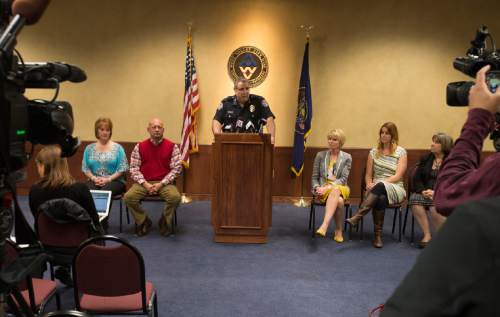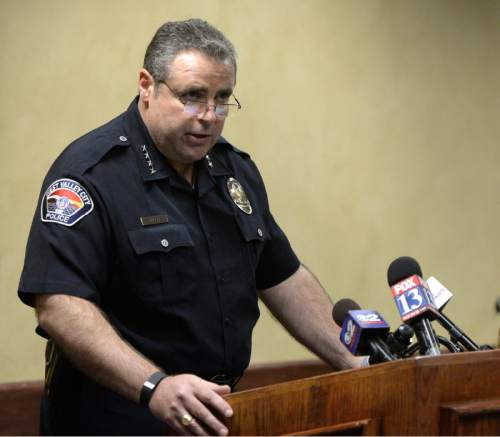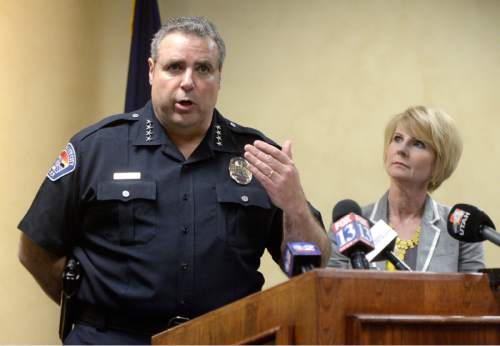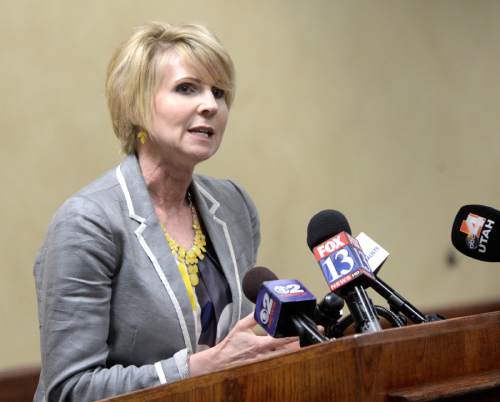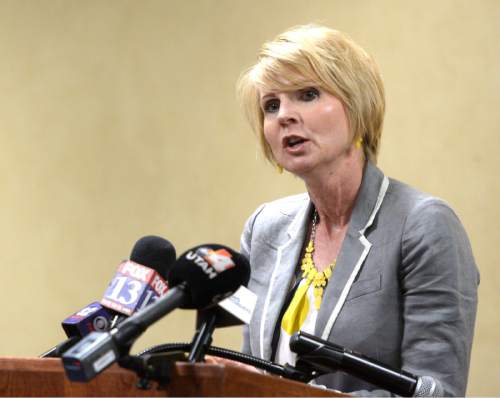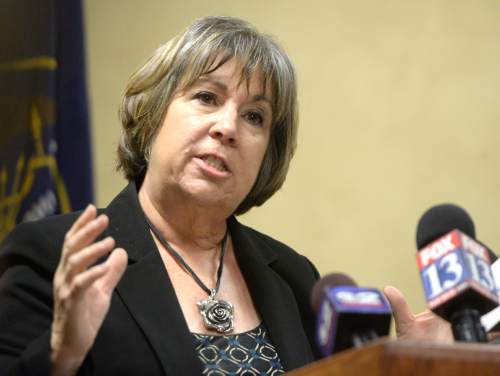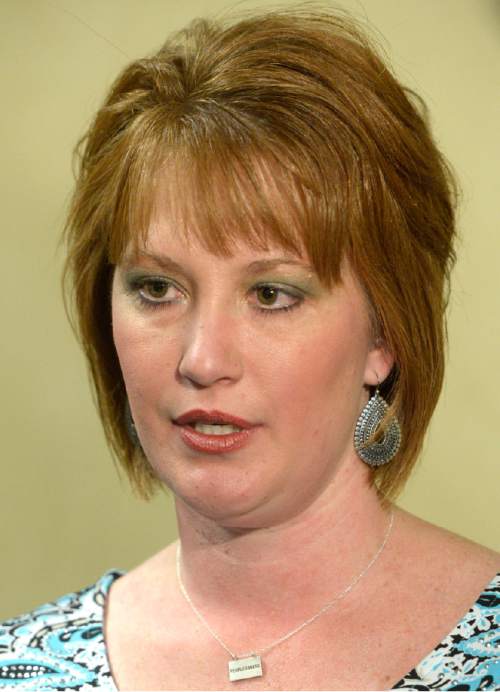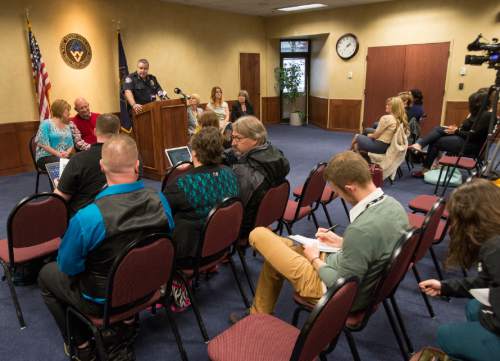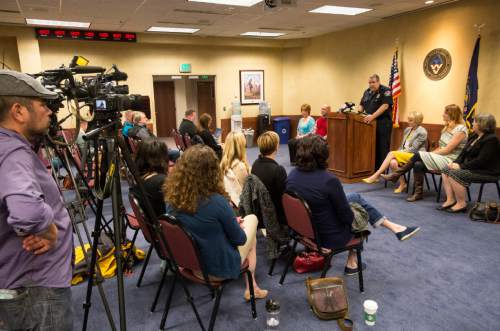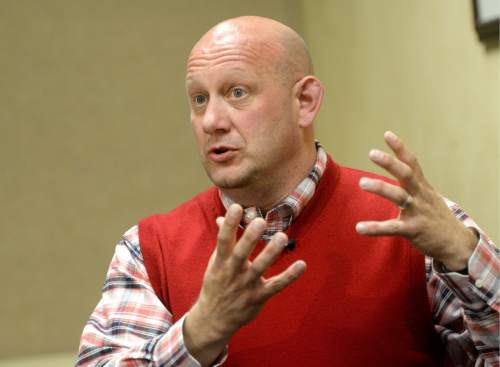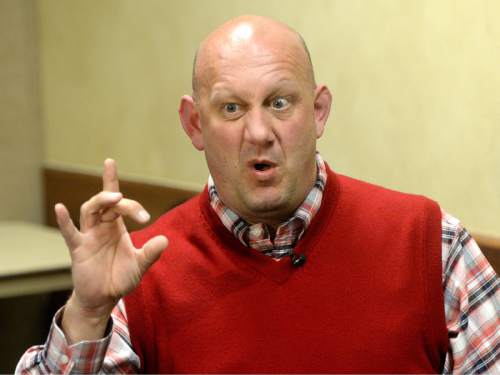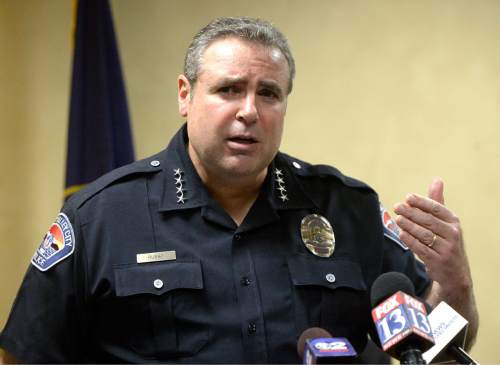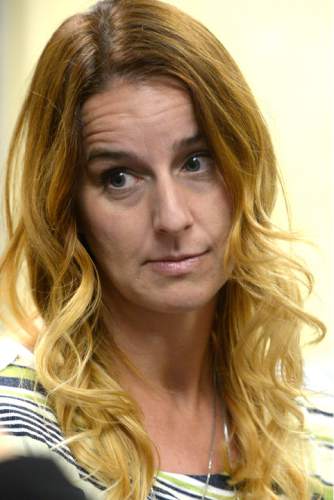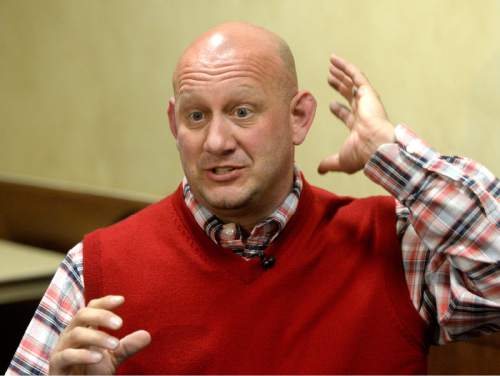This is an archived article that was published on sltrib.com in 2016, and information in the article may be outdated. It is provided only for personal research purposes and may not be reprinted.
Michelle Worthen was celebrating her 39th birthday at a barbecue with family and friends when, she said, a party guest sexually assaulted her in her home.
Now, a criminal case is pending against the man. It is one of a rising number of sexual-assault cases being prosecuted in West Valley City, officers say, as police there have adopted new protocol for interviewing victims and advancing forensic evidence kits for testing.
When she told her story to police, "It was basically open dialogue," Worthen, a human resources administrator and mother of two, recalled Thursday. "They said, 'Tell us what happened.' "
That's a significant turnaround from a few years ago, when officers in West Valley City and elsewhere did not understand that trauma can jumble a victim's memory of an assault, said Donna Kelly of the Utah Prosecution Council.
West Valley in spring 2014 trained 43 detectives to take down notes from an accuser without interrupting to challenge the account.
"This interviewing process is a game changer," Kelly said of the new approach at a Thursday news conference at West Valley City Hall.
West Valley officers now are aware that memories of an assault often are more like snapshots, said Police Chief Lee Russo, than "a streaming video that's replayed in the mind."
The new process does not favor alleged victims over defendants, Russo maintained. "It's not about giving away anybody's rights or trying to railroad somebody," he said. Rather, it's a push "to be as thorough as possible."
As an added measure, he said, the department in fall 2014 created a special victims unit to focus on sex assault cases.
The changes have led to tangible results, he said.
From May 2014 to May 2015, 24 percent of West Valley City sex assault cases that involved a rape kit being collected have resulted in criminal charges for offenders, finds a study released Thursday from Julie Valentine, a forensic nurse examiner and researcher at Brigham Young University.
The department and Valentine are not releasing data from years earlier. Instead, they are comparing that rate to the whole of Salt Lake County, where just 6 percent of such cases between 2003 and 2011 resulted in criminal charges.
Valentine's 2013 report of those numbers resulted in a statewide rush to test a backlog of rape kits. West Valley City police began sending each and every rape kit to the forensics lab for analysis.
But a study Valentine released last week found the majority of rape kits from around Utah still are awaiting analysis.
"We're not going to prosecute all of these cases," Valentine said. "But we know how the victim is treated by law enforcement and first responders can affect their whole lifetime."
Worthen agreed. "You can't heal," she said, "when you have a lifelong secret inside of you."
aknox@sltrib.com Twitter: @anniebknox


